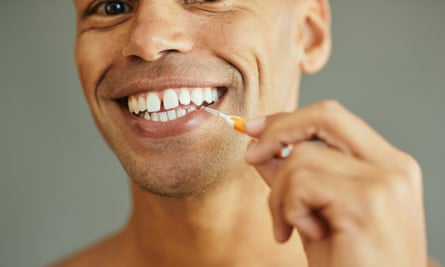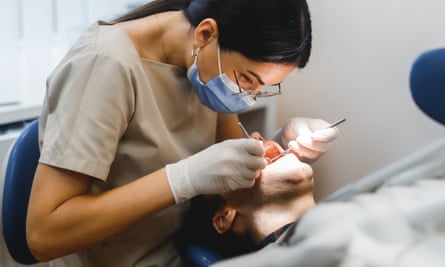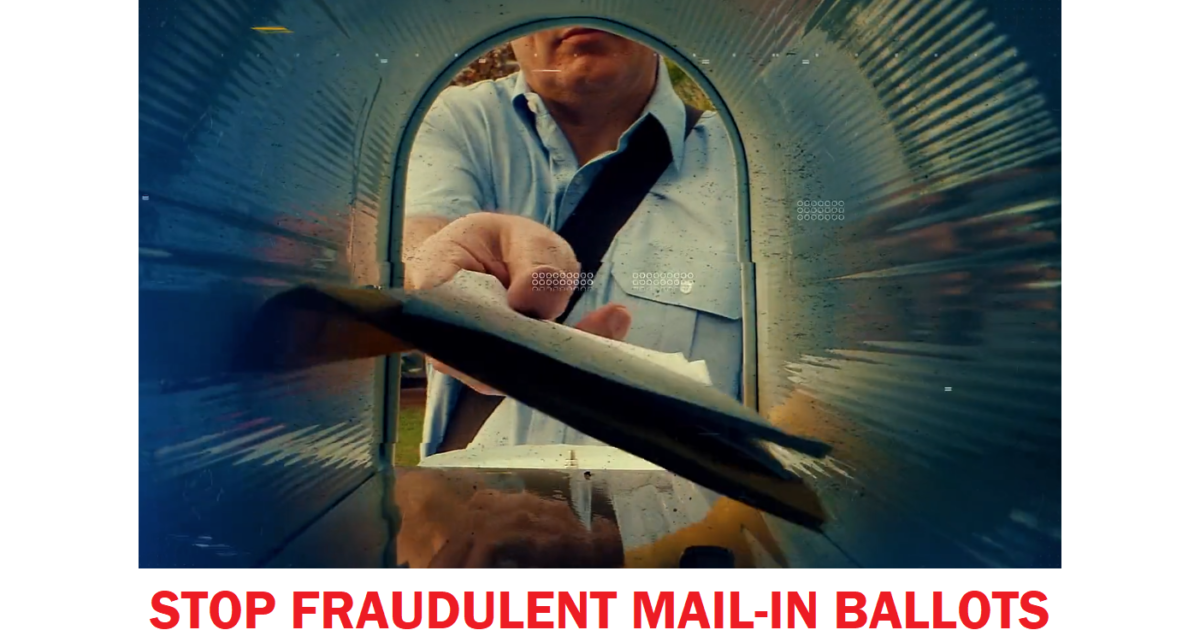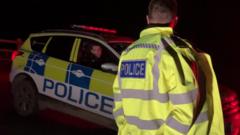It’s easy to take our dental health for granted until there is a problem – and then it can be a nightmare even getting an appointment. But most people have some level of gum disease, and even if it doesn’t hurt, it may lead to worse problems further down the line. Here is advice from dentists on how to avoid painful and costly treatment.
Remember that sugar really is bad for your teeth
“We can’t avoid sugar in modern diets – it is hidden everywhere,” says Tristan Roberts, a dentist who works at several private clinics in central London. “The only reason we have tooth decay is because of sugar.” It is striking, says Roberts, that when we look at teeth in prehistoric skulls, there is hardly any sign of decay – and yet there weren’t dentists and fillings back then. “As soon as we started introducing refined sugars into the diet, decay exploded. Sugar itself doesn’t cause decay but it causes bacteria in the mouth to go crazy: they eat the sugar and release lots of acid.”
Don’t forget your (electric) toothbrush
“If you are going to have sugar, make sure you are brushing your teeth really well,” says Roberts. “In this day and age, everybody should have an electric toothbrush. It doesn’t have to be a top-of-the-range one, just rechargeable, as they work better, and ideally with a pressure sensor to make sure you’re brushing gently around each tooth. And then it is a case of thoroughly brushing. You need to do the front, middle, back and sides of all your teeth, especially over the gum line, so you’re not just brushing over the tops of them quickly.”
Cut down on snacks
“The timing of when we have sugar is just as important as the amount,” says Roberts. Limit eating and drinking sweet things to no more than four times a day: breakfast, lunch, dinner and one snack, he says. If you have to have chocolate, make sure it is at those times, “rather than constantly grazing throughout the day when your teeth would be in a constant state of attack”. Rinsing your mouth out with water or using sugar-free chewing gum straight after a sugar hit can help to reduce the acidic load on the teeth, he says.
“Your teeth can cope with breakfast, lunch and tea, but they can’t really cope with much else in between, other than water,” says NHS dentist Jenna Murgatroyd, who owns St Agnes Dental Practice in Cornwall. “If you are constantly bathing your teeth in food, then you are constantly feeding the bacteria, which causes decay.”
Wait for 30 minutes after eating to brush
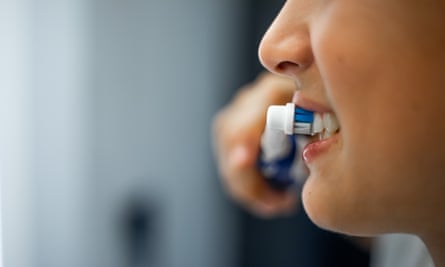
The saliva in our mouths is really good stuff for cleaning, says Roberts. “It has got things in it such as calcium and phosphate, which is what teeth are made of, causing the teeth to go into a state of repair.” It takes about half an hour after eating for saliva to remineralise the teeth, he says, so hold off on brushing until this point or you may end up brushing away the surface of your teeth. “Your teeth have the ability to reharden after you’ve eaten something,” says Murgatroyd. “If you’re brushing your teeth as soon as you’ve eaten, then you are brushing off the softened enamel before it has the chance to toughen up again.”
Brush before breakfast and last thing at night …
You don’t need to brush your teeth every time you eat, says Roberts – twice a day will suffice. “Ideally, first thing in the morning to get the fluoride benefit of the toothpaste protecting teeth during the day, and then especially well last thing at night, because when we sleep our mouths are a lot drier; we haven’t got the same amount of saliva that is produced during the day. Bacteria love those conditions and are a lot more likely to cause issues.”
… and keep at it for the full two minutes
“Most people will brush for less than a minute and think it has been two minutes,” says Dr Praveen Sharma, an associate professor and honorary consultant in restorative dentistry at the Birmingham dental hospital. “Even people with an electric toothbrush often don’t realise that most have an inbuilt timer, which buzzes at certain intervals and buzzes a bit differently when the full two minutes is up.”
Use fluoride toothpaste
“Fluoride makes the teeth about 10 times more resistant to erosion and decay,” says Roberts. “It also has antibacterial properties that help to protect the teeth.”
Are fears about fluoride unfounded? Most areas in the UK don’t have fluoridated water. In some places it occurs naturally, and some councils add fluoride to the water supply, but in minute concentrations (one part of fluoride per million parts of water). “You’re not going to get a significant amount of fluoride exposure if you are brushing your teeth twice a day, even if you’re using high-strength fluoride toothpaste,” Roberts explains. “Yes, it can be dangerous if you’re having loads – say 1,000 times more fluoride than you would ingest from brushing your teeth. And too much fluoride can weaken your teeth. So it’s just about the sweet spot of having a little bit of fluoride; you’ll be fine with the concentrations that we have available.” A smear of toothpaste for kids under three and a tiny pea-size blob on a brush for kids aged three to six is plenty, Roberts says.
Don’t rinse
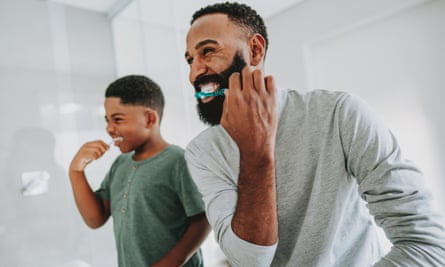
“Spit the toothpaste out but don’t rinse it with anything afterwards,” says Murgatroyd, to ensure you get the benefit from the toothpaste.
Avoid using mouthwash straight after brushing
“At the moment, the advice is not to use mouthwash directly after brushing your teeth,” says Roberts, “because the concentration of fluoride is a lot lower than what is in toothpaste. So either use it before brushing your teeth or any other time during the day, half an hour after brushing.”
Brush mindfully
“Brushing should be an exercise in mindfulness,” says Sharma, “where you’re really feeling the bristles going between the tooth and gums and from tooth to tooth, listening to the sound of the brush, tasting the toothpaste.” It should not be done “while you’re walking around doing other things at the same time: you need to be very present in the moment”.


